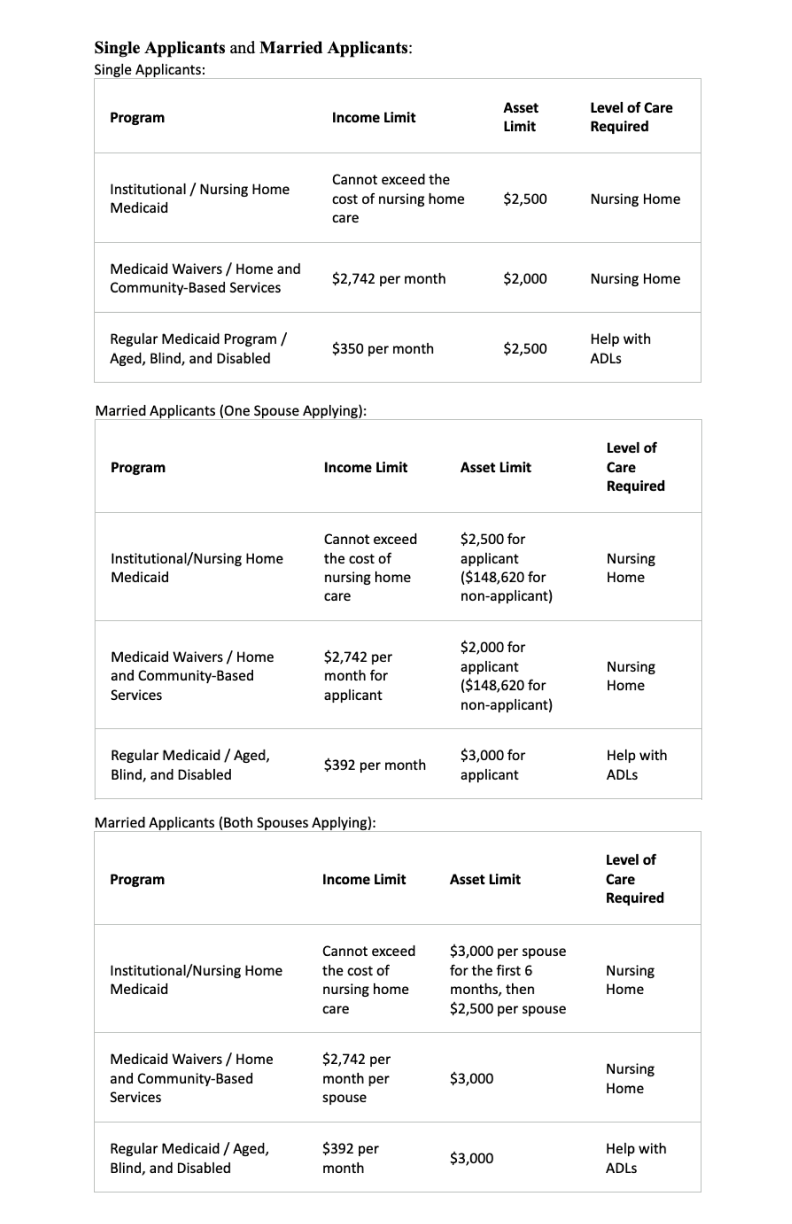
Navigating through the complexities of the healthcare system can be daunting, especially when planning for long-term care for our aging parents. Ensuring they receive the appropriate care and financial support is paramount. With rising medical costs, Medicaid becomes a feasible option for many families. Yet, qualifying for Medicaid isn’t easy; it requires a careful and strategic financial spend down plan, which involves considering aspects like assets, income, and quality of life for those involved.
Understanding Long-Term Care and Medicaid
 When it comes to meeting the medical and non-medical requirements of individuals battling chronic illnesses or disabilities, long-term care plays a critical role. Predominantly, older adults are the ones in need of such care, which encompasses daily activities like eating, dressing, and bathing. The provision of these services can occur at home, within the community, or in an institutional setting such as a nursing home.
When it comes to meeting the medical and non-medical requirements of individuals battling chronic illnesses or disabilities, long-term care plays a critical role. Predominantly, older adults are the ones in need of such care, which encompasses daily activities like eating, dressing, and bathing. The provision of these services can occur at home, within the community, or in an institutional setting such as a nursing home.
One of the primary resources to finance long-term care is Medicaid, a collaborative program between federal and state authorities. While Medicaid can significantly help offset long-term care costs, it is crucial to note that the program isn’t automatically accessible to everyone. The decision hinges on the applicant’s income and assets, subject to the complex and varying rules, across different states.
Eligibility for Medicaid calls for an astute understanding of these rules and the applicant’s financial status. The ultimate goal is to leverage these regulations and financial spend down planning to establish eligibility for Medicaid while preserving as much of the applicant’s income and assets as possible. It’s a delicate balance that necessitates an in-depth understanding of Medicaid and a strategic approach to financial planning.
Importance of Early Planning
When it comes to Medicaid planning, time is of the essence. Rather than being a singular event, it’s a continual process involving the methodical deployment of financial and legal strategies to secure Medicaid eligibility for potential applicants. By initiating this process well in advance, you can arm yourself with a thorough understanding of Medicaid, the accompanying regulations and requirements, and how they apply to your parents’ financial situation.
For instance, suppose your parents have sizable savings and a valuable property. Instead of waiting until the need for long-term care arises, they could start making appropriate financial arrangements years in advance. This could involve creating an irrevocable trust or making permissible gifts under Medicaid regulations, thereby reducing their countable assets systematically.
Medicaid has a five year or sixty-month look-back period, a specified duration during which all financial transactions are scrutinized. If assets were transferred or sold below market value within this period, it could lead to disqualification. Consequently, early planning enables you to navigate these rules strategically, ensuring you avoid penalties that could postpone the commencement of Medicaid benefits.
By addressing complex planning objectives at the outset, you can effectively safeguard your parents’ assets while ensuring they receive the care they need. Early planning can alleviate the financial pressure and provide peace of mind. It allows you to systematically decrease your parents’ countable assets to qualify for Medicaid, while simultaneously preserving their income and resources.
Thus, proactive planning not only smoothens the road to Medicaid eligibility but also enables you to prepare for unforeseen circumstances, ensuring your parents’ long-term care needs are adequately addressed.
Structuring a Spend Down Plan
Crafting an effective spend down plan is crucial for your parents to become eligible for Medicaid. This strategy involves carefully reducing their countable assets to fall within Medicaid’s specific thresholds. Common methods of spend down include paying off existing debts, making essential home modifications to accommodate health needs, or even prepaying for funeral expenses.
 The key to a successful spend down plan is to account for the individual’s unique needs and priorities. It’s not just about reducing assets and income; it’s also about ensuring these resources are allocated in a manner that benefits your parents the most. For instance, if your parents own a house that is not fully accessible, using some assets to make necessary modifications can improve their quality of life while decreasing their countable assets.
The key to a successful spend down plan is to account for the individual’s unique needs and priorities. It’s not just about reducing assets and income; it’s also about ensuring these resources are allocated in a manner that benefits your parents the most. For instance, if your parents own a house that is not fully accessible, using some assets to make necessary modifications can improve their quality of life while decreasing their countable assets.
However, the spend down process isn’t merely about spending money on anything. You must have a clear understanding of what Medicaid counts as assets and income. For example, your parents’ primary residence, personal belongings, and one vehicle are usually not counted as assets for Medicaid purposes. On the other hand, checking and savings accounts, stocks, bonds, and second cars are typically countable assets.
Therefore, when devising a spend down plan, you need to identify which assets are countable and which are exempt. From there, you can strategically allocate resources in ways that will effectively lower their countable assets without compromising their quality of life.
Remember, spend down planning is a delicate balancing act. It’s about maintaining a fine line between becoming Medicaid eligible and ensuring your parents have the resources they need for their well-being. Missteps in this process could not only jeopardize Medicaid eligibility but also put your parents’ financial security at risk.
Hence, careful planning, possibly with the assistance of a knowledgeable Medicaid planner, can go a long way in ensuring a successful spend down strategy. They can help you navigate the intricacies of the Medicaid rules and identify potential pitfalls. This, in turn, can help you make informed decisions that will maximize benefits while ensuring your parents’ long-term care needs are met.
The Role of a Medicaid Planner
When it comes to devising a strategic financial spend-down plan for your parents to qualify for Medicaid, the expertise of a Medicaid planner can prove invaluable. Generally, these are elder law attorneys with specialized knowledge in Medicaid like the attorneys at JDKatz, and an understanding of the specific needs and challenges faced by aging adults. Their role is to help guide you through the labyrinth of rules and regulations, offering advice and providing solutions tailored to your parents’ unique situation.
A Medicaid planner brings to the table a nuanced understanding of the Medicaid process over product. This means they know it’s not just about achieving a set outcome; rather, the journey to reach that outcome involves a series of careful decisions and strategic moves, all made with the ultimate goal of securing Medicaid eligibility for your parents while preserving their assets and income.
Expertise extends beyond a mere understanding of the rules. Real expertise requires the practitioner to be constantly up-to-date with the latest changes and developments in the law, thus providing you with current and relevant information. Their guidance can help you avoid costly errors that could delay your parents’ eligibility or compromise their financial security. Additionally, they can offer you legal strategies to protect your parents’ assets while successfully qualifying for Medicaid.
Moreover, attorneys play a vital role in managing complex planning objectives. They can help identify potential pitfalls in your spend down plan and suggest alterations to avoid them. Their advice can guide you towards making informed decisions that consider both immediate and long-term implications. For instance, they can help you understand the implications of the look-back period or advise you on how to appropriately transfer assets without incurring penalties.
In sum, a Medicaid planner’s role extends beyond mere assistance. They become an integral part of your journey towards securing Medicaid eligibility for your parents, providing the guidance and expertise necessary to navigate the complex landscape of rules and regulations. Their advice can help ease the burden of the process, allowing you to focus on what’s truly important – ensuring the well-being and care of your parents.
Possible Pitfalls and How to Avoid Them
Misunderstanding: Embarking on the Medicaid planning journey is not without its challenges. One of the most significant risks is misunderstanding the look-back period and inadvertently making incorrect asset transfers. Such mistakes can lead to severe penalties, including possible disqualification from Medicaid.
Procrastination: Another prevalent pitfall is procrastination. Postponing the planning process can result in insufficient time to effectively spend down your parents’ assets. Such delays can place their Medicaid eligibility in jeopardy, possibly leaving them without the essential financial support they need for long-term care.
Preventing these pitfalls requires proactive planning and sound professional advice. Consulting with an experienced Medicaid planning attorney can be an invaluable asset in this journey. They can provide comprehensive insight into the complexities of Medicaid rules and assist in developing a strategic financial spend down plan tailored to your parents’ specific situation.
The attorney can shed light on the intricate details of the look-back period and guide you on how to transfer assets appropriately without attracting penalties. Their advice can be instrumental in ensuring that you do not make uninformed decisions that could jeopardize your parents’ eligibility.
With a Medicaid planning attorney at your side, you can confidently navigate the complex Medicaid landscape. Their expert guidance can help mitigate risks, providing you with the clarity and understanding needed to make informed decisions. In turn, this ensures you’re taking the best steps towards securing your parents’ long-term care needs.
Remember, avoiding these pitfalls isn’t just about securing Medicaid eligibility; it’s about ensuring your parents have the necessary resources for their well-being without compromising their financial security. With the right guidance and proactive planning, you can successfully navigate the Medicaid planning journey, securing your parents’ future and offering them the care they deserve.

To read or fill out our Medicaid questionnaire, please click here.
By: Jeffrey D. Katz, Managing Partner
